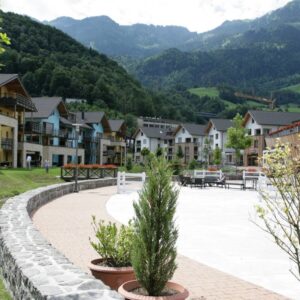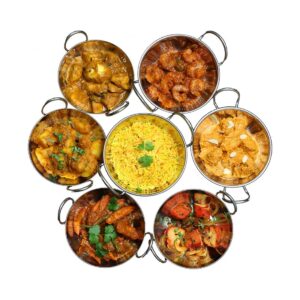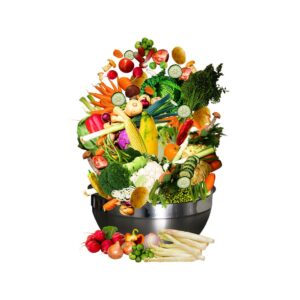
Identify the SDG goals
Start by reviewing the 17 SDGs and identifying the goals that are most relevant to your agritourism operation. Consider goals such as zero hunger (SDG 2). Responsible consumption and production (SDG 12). Climate action (SDG 13), and partnerships for the goals (SDG 17). This step will help ensure that the goals you focus on align with the needs and aspirations of farmers. Likewise for local government and agri-food companies.
Assessing current practices:
It’s important to conduct a thorough assessment of your agritourism operations from the perspective of farmers, local government, and agri-food companies. This evaluation should encompass social, economic, and environmental aspects. Such as resource use, waste management, community engagement and local economic development. Let’s involve these different stakeholders in the assessment. You can gain a comprehensive understanding of the existing practices and identify areas for improvement.
Developing sustainable practices
Based on the assessment, develop a sustainability action plan that reflects the perspectives and interests of farmers, local government, and agri-food companies. This plan should outline specific steps to align with the identified SDGs. For instance, it could include initiatives such as promoting sustainable farming practices, reducing water and energy consumption, preserving biodiversity, and supporting local communities through job creation and procurement from local suppliers. By incorporating the perspectives of all stakeholders, you can ensure that the proposed practices are feasible and beneficial for everyone involved.
Engaging stakeholders
Engagement and collaboration with stakeholders are crucial for successful alignment of agritourism with the SDGs. Farmers, local government representatives, and agri-food companies should be actively involved in the decision-making process and have opportunities to express their opinions and concerns. Regular meetings, workshops, and consultations can foster open dialogue and build strong partnerships. This inclusive approach will increase the likelihood of achieving mutual goals and address any potential conflicts or challenges that may arise.
Educating visitors
Our favorite aspect of aligning agritourism with the SDGs is educating visitors about the importance of sustainability and responsible consumption. Farmers can play a vital role in providing educational opportunities to visitors, such as farm tours, workshops, and interactive experiences. This helps visitors understand the efforts made by farmers to conserve resources, protect the environment, and support local communities. Local government and agri-food companies can collaborate with farmers to develop informative materials and promote responsible behavior among visitors. Agrifood companies could also organize workshops to tell about these sustainable practices at the farms they source from.
Fostering local partnerships
Collaboration among farmers, local government, and agri-food companies is essential to maximize the positive impact of agritourism on sustainable development. By forming partnerships, joint marketing campaigns can be developed or resources can be shared. Stakeholders can leverage each other’s strengths and contribute to the SDGs more effectively. Agri-food companies can support local farmers by sourcing products for their operations, while local government can provide policy support and create an enabling environment for sustainable agritourism.
Monitoring and reporting progress
Establish a monitoring and reporting system to track progress towards the SDGs and evaluate the effectiveness of sustainability initiatives. Regular communication and sharing of progress reports with farmers, local government, and agri-food companies promote transparency and accountability. This way, stakeholders can identify areas that require further improvement and celebrate successes together.
Advocating for policy support
Collaboration between farmers, local government, and agri-food companies extends beyond individual agritourism operations. Stakeholders can collectively advocate for policies and regulations that support sustainable agritourism development aligned with the SDGs. By participating in forums, networks, and associations, they can share best practices and contribute to policy discussions, ensuring that the interests of all stakeholders are represented.
By following these steps and involving farmers, local government, and agri-food companies, agritourism can be effectively aligned with the SDGs. This collaborative approach promotes sustainability, supports local communities, and enhances the overall experience for visitors.
Get in touch today!
 If you liked our content, feel free to share, or reach out if you would like to engage on this topic! Don’t forget to download the Farmlike app to support farmers on a mission to diversify to all-things agritourism – or reach out via the web
If you liked our content, feel free to share, or reach out if you would like to engage on this topic! Don’t forget to download the Farmlike app to support farmers on a mission to diversify to all-things agritourism – or reach out via the web Docs
Docs
 Support
Support



















 Home
Home  Whishlist
Whishlist  Cart
Cart 

















